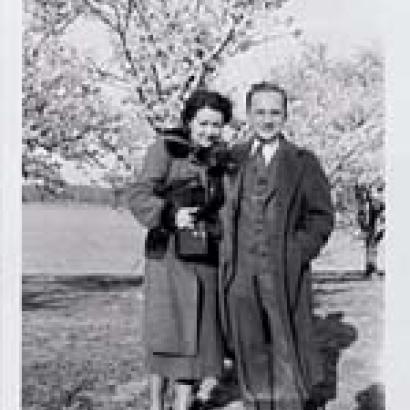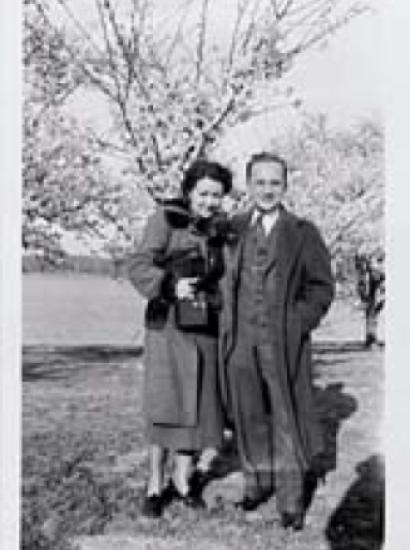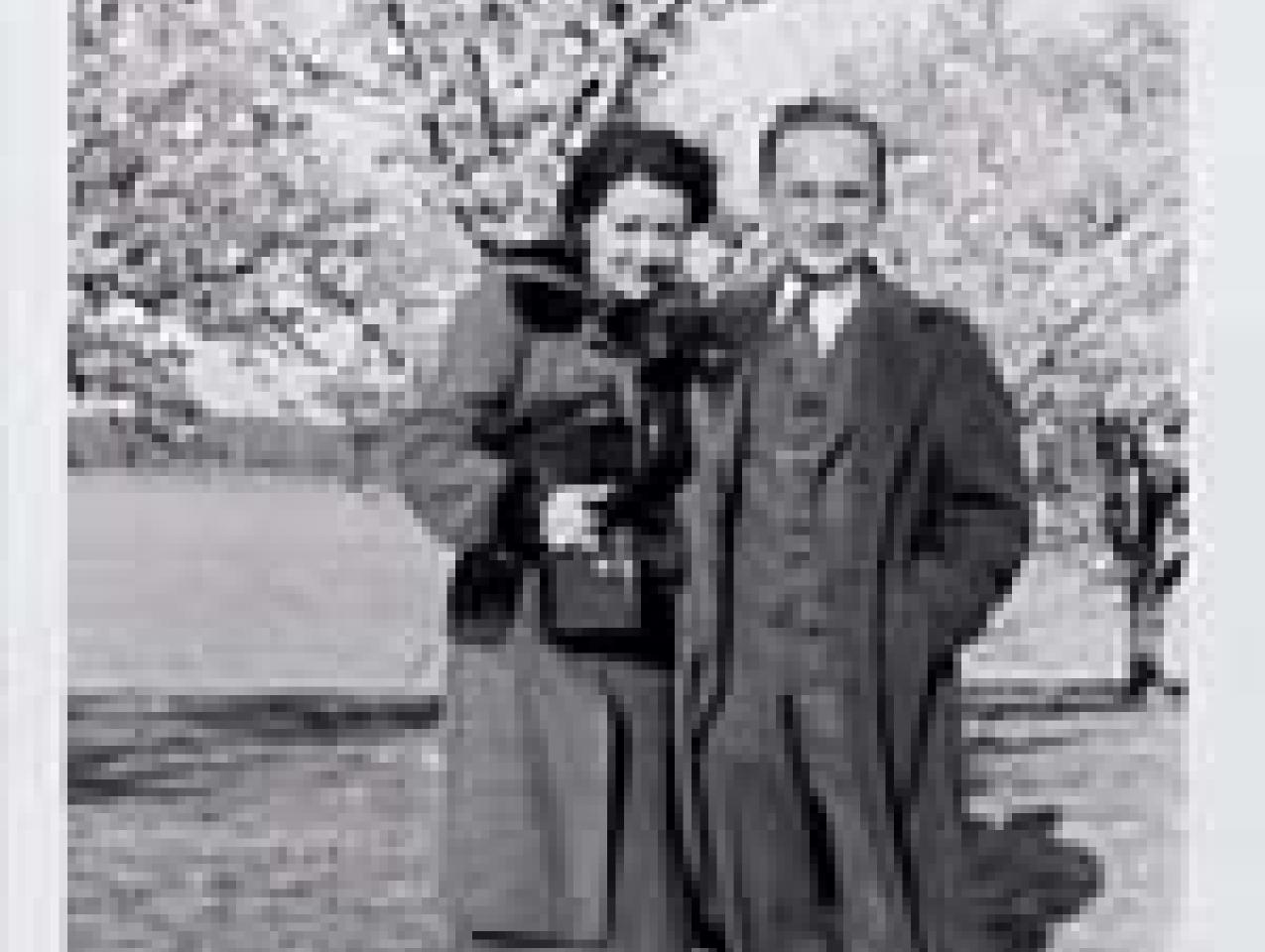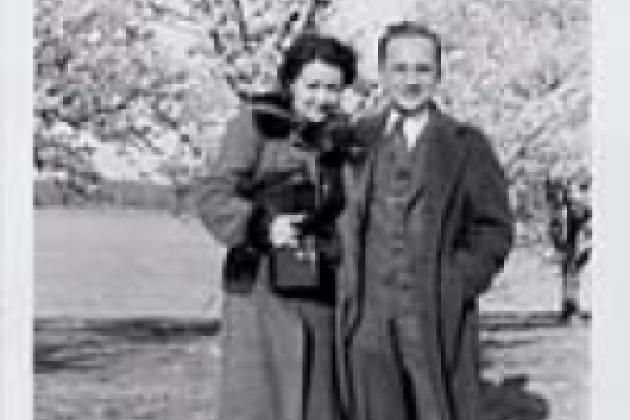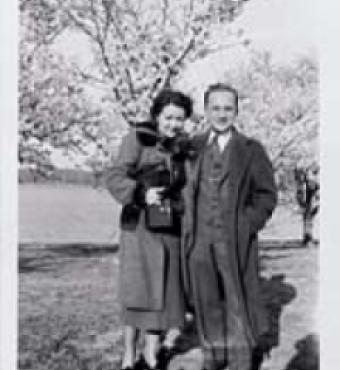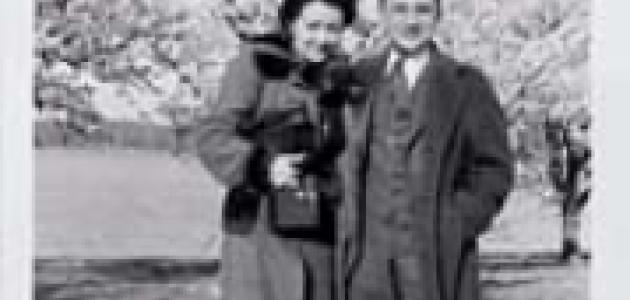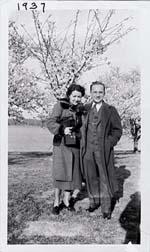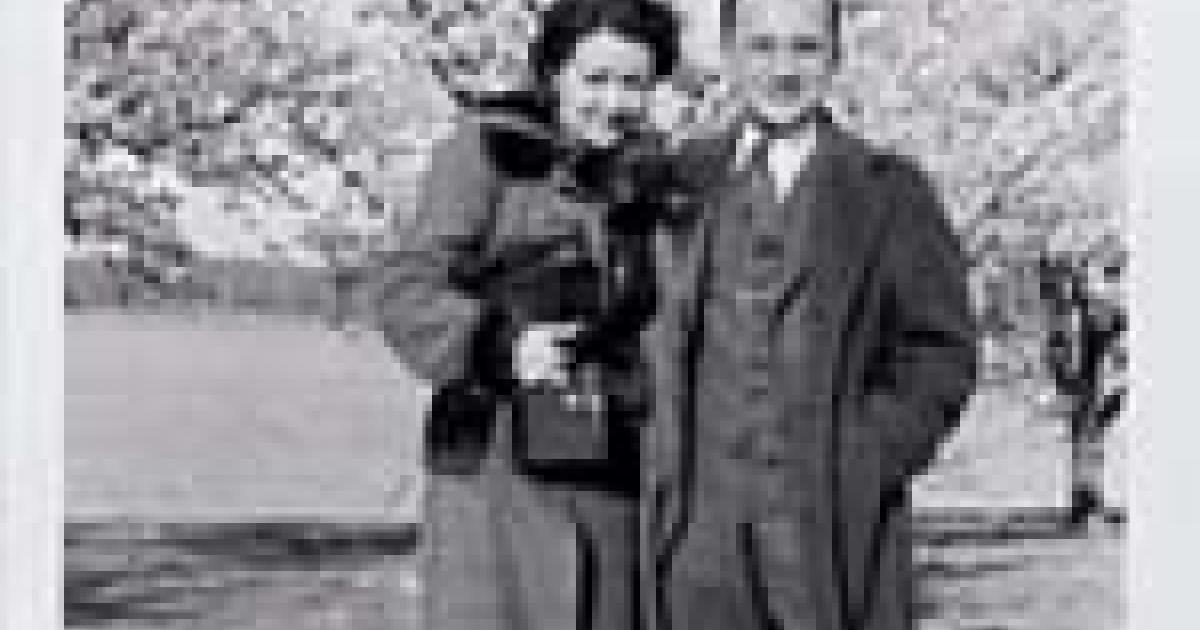- Economics
- World
- History
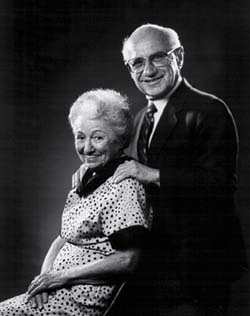
GERHARD CASPER
PRESIDENT, STANFORD UNIVERSITY, AND MEMBER OF THE HOOVER INSTITUTION BOARD OF OVERSEERS
The Friedmans consider the University of Chicago to be something of an ideal. As they write in Two Lucky People: “The University of Chicago is famous for its intense and stimulating intellectual atmosphere. Concentration on ideas; intellectual discourse among equals judged by scholarly activity, not status; tolerance for unconventional ideas; interaction among scholars in different fields—these are the hallmarks of what we continue to regard as our university.”
What Milton and Rose rightly celebrate as characteristics of the University of Chicago should be the characteristics of any first-rate university. In order to thrive, the university must embrace academic freedom, which includes a tolerance for unconventional ideas. Academic freedom means above all the freedom from politics in order to concentrate on ideas. But academic freedom also means freedom from pressure to conform within the university. For Milton and Rose Friedman, this has meant continuing to write books even when some of the elite of higher education refused to stock those books in their libraries. It has meant pursuing their research and teaching with vigor even when they received a chilly and chilling reception from faculty colleagues early in their careers. And it has meant continuing to speak out even when uninformed student protesters demonstrated outside their apartment house. In the university community,
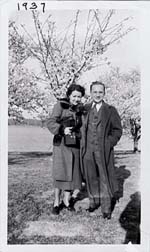
as the Friedmans note in their memoirs, intellectual discourse should be judged by scholarly ability, not status. Milton and Rose have always proclaimed that it does not matter who said what but only whether the statement is right.
Stanford University’s motto is Die Luft der Freiheit weht, “the wind of freedom blows.” Stanford’s first president, David Starr Jordan, took it from Ulrich von Hutten, the fifteenth-century humanist and early fighter for secular freedom. Jordan greatly admired Hutten and wrote that he “was a man not of free thought only, but of free speech and no concealment.” Likewise, the Friedmans have retained an unshakable distaste for anything other than plain talk, unadulterated truth, and rigorous, unfettered debate. On behalf of Stanford University, I would like to express my great appreciation and affection.
WALTER WRISTON
FORMER PRESIDENT AND CHAIRMAN OF CITIBANK
To consider the impact that Milton Friedman’s career has had, think back for a moment to 1963. That year saw some important and dramatic developments. An American president was brutally assassinated. Another Friedman, named Herbert, directed the launch of a satellite to study X-rays in space for the first time. In consumer affairs, a cassette for recording and playing back sound was introduced. In space, two manned spaceships, one Russian and one American, were in orbit at the same time. And back on earth, Milton Friedman and Anna Schwartz published their massive study, A Monetary History of the United States. An argument can be made as to which of these events had the most lasting and pervasive effects on our subsequent history, but no one can deny that the monetary history had a profound influence not only on the way we think about the world but on the way it works.
The impact of the ideas in Friedman and Schwartz’s book was reflected in extraordinary ways in the markets. The bridge between academia and business has often been tenuous at best, but it soon became very real. Every Friday afternoon, a kind of an eerie silence settled over the normally boisterous trading rooms on Wall Street. The computer screens started going blank at about 4:20 as traders waited for the 4:30 announcement by the Federal Reserve of the M1 and the M2 figures. The quantity theory of money had come to Wall Street, and it was instantly reflected in the price of government bonds. It was a truly extraordinary demonstration of how the power of an idea advanced by a private citizen can affect the way the world works.
The massive technical research that has characterized the Friedmans’ writings, while impressive and enormously beneficial to generations of economists, fails to explain their true impact on the way the world works. What is even more remarkable than their research is their ability to utilize this data to state complex economic truths in a language all of us can understand. Indeed, the slow death of the Keynesian thesis is due, at least in part, to three words that everyone in the world can understand: “Free to Choose.”
No one who has been fortunate enough to listen to the Friedmans fails to learn something new. This magic, which is the gift of all great teachers, was projected to millions of people around the world by television. In the same year that Free to Choose came out, a student of the Friedmans named Ronald Reagan was nominated for president and added his powerful gift for communication to the cause. And one country after another has now moved toward free markets and some form of democracy.
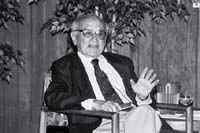
While the world moves toward freedom, we now observe that the industrial age is morphing into a network/information economy that is as different from the industrial society as that society was from the agricultural society that preceded it. Clearly the world has changed, and the question arises, does the new economy need some new rules? Or do the old rules still apply? Will the long boom continue or soon end? Does the quantity theory of money have to be amended now that more than two-thirds of all cash issued by the Federal Reserve is no longer in this country and resides permanently abroad? Today one can buy anything in cyberspace, from a car to an airline ticket, and pay for it with a series of electronic bits arranged in a way that people believe constitutes money—money that may never be redeemed for Federal Reserve notes as it may never leave the net. All of this, and much more, cries out for the analytic powers of the Friedmans to guide us in formulating and understanding the new rules for a new economy or telling us the old rules are still valid.
Recently, the New York Times carried on its front page a picture of a group of people who were all over the age of one hundred, and it suggested that this lifespan might become more common. That’s good news for everybody but particularly for the economics profession. It means that we can look forward to work by the Friedmans giving us their analysis of the new realities in the global marketplace. I can hardly wait.
GARY S. BECKER
NOBEL LAUREATE, SENIOR FELLOW AT THE HOOVER INSTITUTION, AND UNIVERSITY PROFESSOR OF ECONOMICS AND SOCIOLOGY AT THE UNIVERSITY OF CHICAGO
Having been a student of Milton and Rose for almost fifty years, it is a great pleasure to celebrate their remarkable careers. As my wife, Guity, and I were reading Two Lucky People, we both concluded independently that the title of their book might have been Two Very Brave People. During the last half century, I’ve watched Milton and Rose successfully stand their ground against the dedicated and often vicious opposition to their challenges to a variety of sacred cows—Keynesianism, big government, Chilean reforms, the American Medical Association, unions, public schools, drug prohibition, and many others.
I was first exposed to Milton’s insightful mind and forthright manner—his bluntness, if you will—the very first day I had contact with him in his legendary class for first-year graduate students at the University of Chicago. I had just come from Princeton and was under the mistaken impression that I knew a lot of economics. So when Milton asked a question near the beginning of the class, I immediately shot up my hand and gave an answer. And to this day—and this is fifty years later, mind you—I remember his response. He said, “That’s no answer. That’s merely a restatement of the question in other words.” Well, he was absolutely correct. At that moment I decided that I had to stop thinking about writing articles and had to concentrate instead on really learning economics. I spent the next six years studying very closely at Milton’s feet, and I have continued to learn from him ever since.
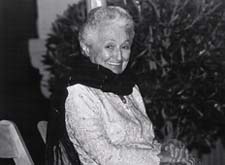
Being a student of Milton’s was magic indeed. People would always ask me, Why are you so excited? Are you going out on a date with a beautiful woman? I said, no, I’m going to a class in economics. How could you be so excited about a class? And I said, this was the greatest intellectual experience I have ever encountered. Milton opened my eyes to economics and taught a generation of students at the University of Chicago what true economics is all about.
The work of Milton and Rose Friedman is often divided into scientific and policy parts. I would argue that these parts cannot really be separated. All their findings have had major policy implications. Conversely, their public policy views are grounded in a deep analysis of human behavior and have stimulated major scientific advances. I believe that this close relation between the scientific and policy aspects is in good part responsible for the lasting impact that their work has had. Economics is, after all, not a theoretical field, although sometimes economists act as if it was. It is a field whose justification is the ability to understand and ultimately to recommend better public policies. If you look at the economics profession, there is practically nobody in this century who has combined science and public policy in such an effective fashion.
During their many years at the University of Chicago and at the Hoover Institution, Milton and Rose have taught thousands of students—but also, by way of their books and television work, millions more outside the classroom. I think I can speak for all of us when I say that we are eternally grateful.
ROBERT J. BARRO
SENIOR FELLOW AT THE HOOVER INSTITUTION AND THE ROBERT C. WAGGONER PROFESSOR OF ECONOMICS AT HARVARD UNIVERSITY
At the Harvard University I knew as a graduate student in the late 1960s, Milton Friedman was treated as a right-wing midwestern crank. Most of the derision applied to his views on money, including the argument that inflation was always and everywhere a monetary phenomenon. Even the permanent income theory of consumption—his scientifically impeccable model in which consumer demand depended on a household’s anticipated long-run income—was subjected to poorly reasoned criticism.
Friedman’s contributions to public policy, as expressed most effectively in Capitalism and Freedom, were dismissed by being ignored. Thus, we unfortunate Ph.D. students did not learn about his prescient ideas. Many of these once radical ideas have become mainstream policies, and others are on the active agenda. The all-volunteer army has worked well for many years, the earned-income tax credit is a boon for the working poor, the flat-rate income tax is a serious proposal in Congress, and school vouchers are under consideration in many states. The current debate on Social Security reform is primarily over the extent and form of private accounts, rather than the wisdom of any privatization. Some years from now we will perhaps be seeing a similar debate over the details of drug legalization, one of Friedman’s most recent policy proposals.
Ironically, the only person to rival Friedman for policy influence in the twentieth century is John Maynard Keynes, who had a strikingly different view of the role of government. Keynes was influential because he advocated more government intervention into what he perceived as poorly functioning private economies caught up in the Great Depression. In contrast to Keynes, Friedman put the primary blame for the depression on government failures, especially of monetary policy. Hence, the depression did not conflict with Friedman’s preference for less government and tighter rules to constrain macroeconomic policies. He also found in the Federal Reserve’s failure to prevent deflation an argument in favor of monetary rules. As the world evolved—with price stability becoming the major mission of central banks and free markets and property rights becoming the central policies to promote economic growth—Friedman surely won the intellectual battle.
It is notable that Milton Friedman’s transition from pariah to priest was achieved mainly through the force of ideas, not by direct participation in the policy process. Except for work during World War II, including his unfortunate contribution to the establishment of income tax withholding, Friedman has avoided government employment.
We are fortunate that Friedman had the good humor and self-confidence to persevere in the face of many years of scorn by liberal economists and journalists. The tables were turned on his detractors many years ago, and—to paraphrase Milton’s famous quote about Keynes—we’re all Friedmanians now.
ROBERT BARTLEY
EDITOR AND VICE PRESIDENT, THE WALL STREET JOURNAL
As we stand here at the beginning of a new century, we find that classical economics and classical liberalism are triumphant. Communism has fallen, statist ideas have declined, even the Japanese model is now a laughingstock. The market is celebrated around the world and individual freedom with it. Yet it was not that long ago that Keynesianism was triumphant throughout the world and people believed in the planned economy and the welfare state. Milton and Rose’s great achievement was keeping the light of classical economics burning during the long Keynesian interregnum.
In his scholarly work, Milton found the chinks in the Keynesian armor—he exposed its contradictions and weaknesses. The consumption function certainly was one. The whole idea of the role of money was another. But as important as his contributions to the field of economics have been, equally important has been his ability to communicate his ideas—not only to fellow economists who read equations but to an audience of intelligent laypeople and policymakers around the world.
Rose was particularly important in this part of the story. She was able to persuade Milton to take up a column in Newsweek, and she was his collaborator on Capitalism and Freedom and Free to Choose, both in the print and television versions. And between them, they had the ability to crystallize, distill, and dramatize their ideas and get them across to a general audience.
Now those of us who occasionally crossed swords with Milton recognize his powers very well. I have had occasion to write that being spanked by Milton Friedman is one of life’s most humiliating experiences. Let me mention one dispute in which I was clearly wrong and Milton was clearly right. We learned in the Gulf War that the all-volunteer army is one heck of a fighting force—Milton won that one. I might also say that I agree with Milton and Rose on the next big policy issue, school vouchers, which would apply the benefits of privatization and competition to primary education, the biggest social problem in our society today. I have seldom seen an issue come out of nowhere with such velocity the way the issue of vouchers has in the past five or so years. It reminds me of the tax cut issue circa 1978. But who would be surprised to learn that the Friedmans were advocating school vouchers back in the 1950s, when vouchers seemed at best an intellectual curiosity and perhaps a totally harebrained idea?
I would like to offer my praise to Milton and Rose as a couple who have played a commanding role in changing their times.
ROSE D. FRIEDMAN
ECONOMIST
George Stigler is reputed to have said that the only way to win an argument with Milton is when he isn’t there. I am in the unique position of being one person who has won arguments with Milton when he was there. Our first argument came before we were married. The question at issue was what kind of a wedding ceremony we would have. Milton’s answer came fast. He said we would go to a justice of the peace and get a marriage license. That would have been fine, but I knew that as far as my parents were concerned, and as far as Milton’s mother was concerned, we wouldn’t be married if all we had was a piece of paper from a justice of the peace. They would expect us to have a traditional Jewish ceremony. I won that one. We were married at the Jewish Theological Seminary in New York City by a rabbi and under a canopy.
The next argument, I have to admit, I lost. I had wanted to live in San Francisco ever since I first saw that city on a hill in 1931, but I had to bide my time. When Milton finished graduate school, there were no offers from any institutions in California, and we did have to eat, so we stayed East. I don’t mean to say that I disliked living in Washington or New York or Chicago, but the idea of living in San Francisco was somehow a dream, and I wanted to have it come true. But I didn’t pursue it because, as I say, there was no chance.
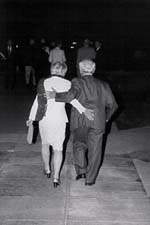
Then in 1964, while we were spending a year in New York City, where Milton was a visiting professor at Columbia, Milton received a telephone call from Moe Abramovitz, an old friend from Milton’s graduate student days. Moe, who was then and is now a professor of economics at Stanford, was calling to see if Milton would be interested in a position at Stanford. It seemed that a Stanford donor felt that the economics department at Stanford was not of the free enterprise sort, and this person was going to provide the funds to set up a professorship at Stanford to be held by someone who shared Milton Friedman’s economics. Well, Milton told Moe that he would think about it, but he was not very enthusiastic. I, on the other hand, had started hoping that this was going to be my time. Milton went back and forth. One day I thought he was going to go, and the next day he would change his mind. In the end, he called Moe and told him no. He couldn’t face deserting the intellectual climate of Chicago.
We finally moved to San Francisco in 1977—although I cannot claim that it was because of my persuasive power. Milton had reached the age of retirement and was very tired of grading exam papers. When Glenn Campbell asked Milton to join the Hoover staff, we did move to San Francisco. We’ve been delighted here ever since.
On two other occasions, my persuasive powers were much more effective. In 1966, Oz Elliot of Newsweek called Milton to ask whether he would be interested in writing a column. Milton said he would think about it, but he had all kinds of reservations. He wouldn’t have enough topics to write about and so on and so forth. I disagreed. I thought it would be a wonderful way of getting his ideas (i.e., the correct ideas) to the public. With a little help from George Stigler and our son David, I succeeded in persuading Milton. He wrote a column for the next eighteen years. And he never regretted his decision.
In 1977 my persuasive powers succeeded once again. Shortly after we arrived in San Francisco, the producer Bob Chitester proposed that Milton embark on a television series to explain his philosophy. Milton listened to the proposal, but once again he had all kinds of reservations. I was enthusiastic for the same reasons as I was about the Newsweek proposal. This time it took a little longer, but I did bring Milton around. The book and television series Free to Choose were the result, and Milton certainly never regretted that decision either.
MILTON FRIEDMAN
NOBEL LAUREATE AND SENIOR FELLOW AT THE HOOVER INSTITUTION
I want to express my thanks to the speakers who have given such splendid talks. Rose and I will go home and try to descend from the clouds that you have put us on and get our feet back on the earth where they belong. And I also want to express a more general note of appreciation for the some twenty years that I’ve been at the Hoover Institution. It has provided me with a splendid place for doing what I have wanted to do in a way that was effective. Since I’ve been at Hoover, we produced the Free to Choose program and several books, some for popular consumption, some for the scientific world. The Hoover Institution has a splendid record of providing individual scholars a place where they can pursue their interests in a way that has influence. I want to express my appreciation to Hoover as an institution as well as to Glenn Campbell and John Raisian as the two directors who have been responsible for Hoover since I have been here.
Now I know all of you would like to hear me say more than that. You’d all like to know, for example, what the stock market is going to do. There is no question I’m asked more frequently. I always give the answer that John Pierpont Morgan used to give: It will fluctuate.
Thank you all, and good night.








